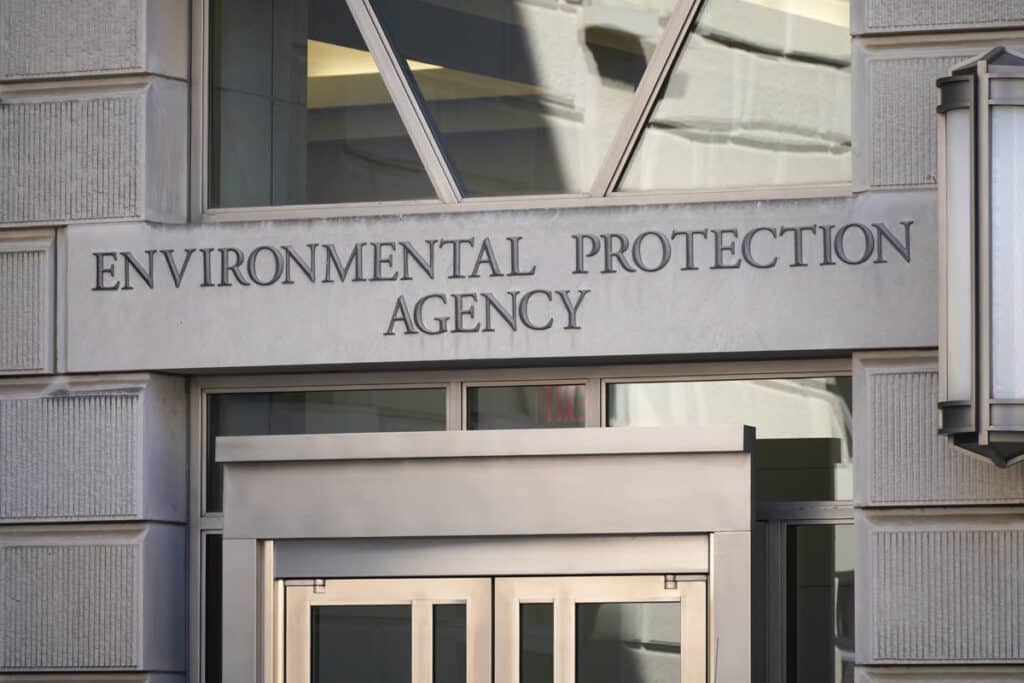Top Class Actions’s website and social media posts use affiliate links. If you make a purchase using such links, we may receive a commission, but it will not result in any additional charges to you. Please review our Affiliate Link Disclosure for more information.

EPA hydrofluorocarbon reduction overview:
- Who: The U.S. Environmental Protection Agency has issued a final rule to significantly reduce hydrofluorocarbons below historic baseline levels through 2028.
- Why: Hydrofluorocarbons have a detrimental effect on the climate.
- Where: The EPA rule applies throughout the United States.
The U.S. Environmental Protection Agency (EPA) has reportedly issued a final rule on the reduction of “climate super-pollutant” hydrofluorocarbons below historic baseline levels through 2028, Law360 reports.
The EPA rule is titled “Phasedown of Hydrofluorocarbons: Allowance Allocation Methodology for 2024 and Later Years” and is aimed at hydrofluorocarbon reduction.
Hydrofluorocarbons are a group of industrial chemicals that are often used in refrigeration, air conditioning, foam products and aerosols. The climate effects from hydrofluorocarbons is significantly stronger than from the same amount of carbon dioxide, according to the EPA.
The new EPA rule will impose a 40% hydrofluorocarbon reduction below historic baseline levels beginning in 2024.
The EPA rule will utilize a methodology similar to that used in 2022 and 2023 by President Joe Biden’s administration to accomplish a 10% reduction in hydrofluorocarbon production and establish regulatory certainty to the industry.
In addition to establishing an allowance allocation program, the EPA will also apply administrative consequences for noncompliance.
Rule is ‘critical next step’ in Biden administration’s hydrofluorocarbon reduction plan, EPA says
Joe Goffman, the principal deputy assistant administrator of the EPA’s Office of Air and Radiation, says the rule is a “critical next step” in the Biden administration’s “ambitious plans” for hydrofluorocarbon reduction.
“The U.S. [hydrofluorocarbon reduction] program, bolstered by domestic innovation to develop alternative chemicals and equipment, is paving the way for the United States to tackle climate change and strengthen global competitiveness,” the EPA’s press release states.
The EPA notes the hydrofluorocarbon reduction schedule is consistent with the schedule established in the Kigali Amendment to the Montreal Protocol, which was ratified by the United States in October 2022.
The EPA hydrofluorocarbon reduction rule is just one of the agency’s latest efforts aimed at reducing the use of harmful chemicals.
Earlier this year, the EPA proposed regulatory limits on “forever chemicals” in drinking water. The EPA also recently announced a new rule aimed at protecting citizens from asbestos exposure.
What do you think about the EPA rule aimed at hydrofluorocarbon reduction? Join the discussion in the comments!
Don’t Miss Out!
Check out our list of Class Action Lawsuits and Class Action Settlements you may qualify to join!
Read About More Class Action Lawsuits & Class Action Settlements:














